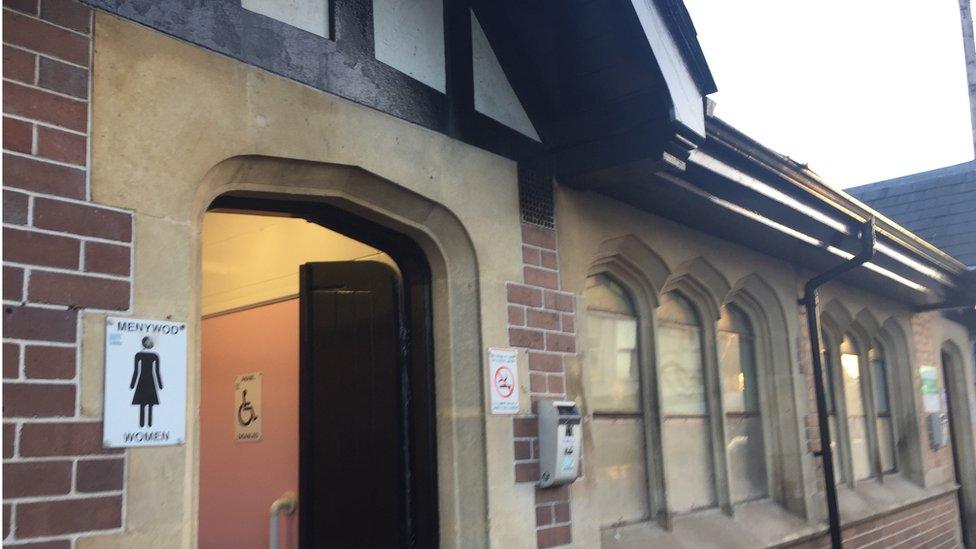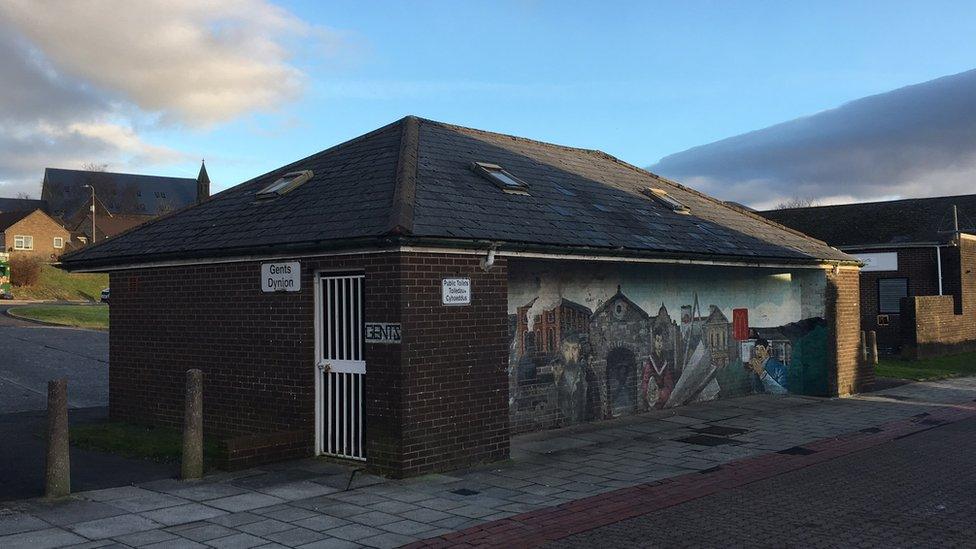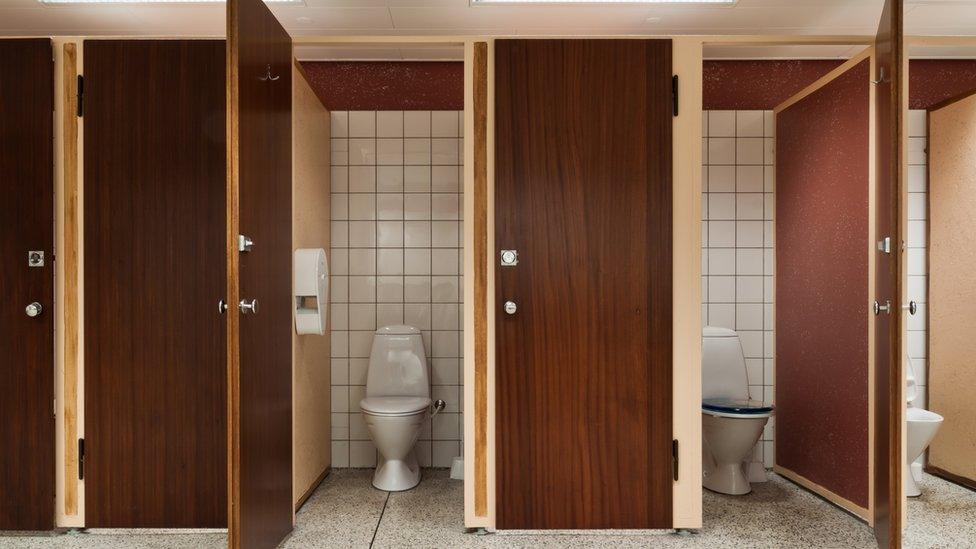Call for more councils to charge for toilets after 113 shut
- Published
- comments
Public toilets are a 'basic human right', campaigners say
More councils should charge people to use public toilets to stop them disappearing for good, campaigners have said.
BBC Wales research shows that more than 100 public toilets have been shut by councils since March 2013 - the equivalent of one in five.
During the same period, they spent more than £23m running toilets.
The Welsh Local Government Association said toilets had "inevitably" been hit by cuts.
There is no legal requirement for local authorities to provide toilets, meaning they are often closed as councils look to cut costs.
Public toilet closures 'distressing' says Crohn's patient
Blaenau Gwent and Merthyr Tydfil now have no council-run public toilets following cuts, with all their toilets run by local organisations, community councils and businesses.
The British Toilet Association (BTA) said people had to realise toilets could "no longer be free" or they would disappear.
Raymond Martin, of the BTA, said if public toilets kept being closed due to cuts it would lead to more people going to the toilet in the streets.
"We need them to be somewhere safe, and well placed, even if it means charging, we have to do whatever it takes - people have to wake up to the fact free toilets are a thing of the past," he said.

BBC research shows that since March 2013:
Welsh councils have shut 113 public toilets due to budget cuts, vandalism and lack of use
About 15 have since been taken over by community groups, town and parish councils - while others have been boarded up, demolished or sold off
Six Welsh councils charged for public toilets, which raised £751,969.97 in three years
The cost of running the toilets reached over £23m during that period - not one of the councils has made a profit from people spending a penny
Blaenau Gwent council decided to close all its toilets in November 2013 due to "budget constraints". Four have since been reopened by community groups
Flintshire council is considering closing two more toilets unless they are taken over by the community this year
All 22 councils said they had no plans to reopen the blocks that have been closed - but many are looking at new ways of addressing shortages, through community schemes or transferring them to other bodies. Merthyr Tydfil said it was hoping to have facilities in the town's new bus station.

Raymond Martin of the BTA said councils needed to start thinking "outside the box".
"Toilets are about life," he said, but added a 20p on the door charge was not helping ease the financial burden.
"As a human being we have to eat, drink, breathe and go to the toilet. Being able to use the toilet whenever we need to is a basic human right.
"It is about the health and wellbeing of everyone who comes to Wales."
He added that councils needed to put charges on the doors, or consider letting part of the block out to turn it into a cafe or other business in order to pay for running costs.

These public toilets in Penarth, managed by Vale of Glamorgan council are free to use. The local authority has spent over £1.1m running loos
Concerns have been raised that toilet closures could prevent older people and those with certain medical conditions from leaving the house.
Age Cymru said older people were prepared to pay for public toilets - but they were often hard to find, closed or dirty.
"This is a public health issue and we believe local authorities should be obliged to provide public toilets because they are a lifeline for older people and other groups in society," he said.
"Public toilets give older people the freedom and independence to get out and about in their local communities."
The Welsh Local Government Association (WLGA) said councils were trying to keep public toilets open.
A spokesman said: "Councils have faced significant cuts in funding during recent years which has inevitably impacted on public toilets provision.
"Councils are looking at alternative approaches to providing public toilets, including working with communities and partners."
- Published3 February 2017

- Published7 November 2016

- Published31 August 2010